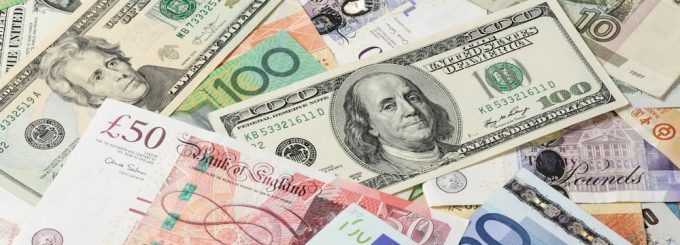How Increasing Restrictions On Cash Affect Currency Collectors

In recent years, restrictions have increased on cash transactions, especially in developed nations. Those who fly frequently know that many airlines no longer accept cash to purchase snacks and beverages during flights, and some stadiums in the U.S. have enacted similar policies. In Europe, countries like France, Spain and Sweden have banned cash transactions above a certain amount, requiring citizens to use electronic payments instead. While such measures won’t affect currency collectors much in the short term, the long term ramifications of such policies should be a cause for concern.
Why Governments And Some Businesses Dislike Cash
Governments generally disdain anything they cannot monitor or control. Cash transactions are private, and until the dawn of the Information Age, there was little governments could do about it. Now, with computers, global networks, and the Internet, governments recognize that digital payments are preferable to cash because it gives them the ability to monitor such transactions and control them as they see fit, a capability which was nonexistent before the advent of computers and networks. Electronic transactions are much easier to tax, and this is the driving force behind the desire to eradicate paper money.
While many small businesses in developed nations still accept cash, many prefer credit or debit card payments because they are easier to process and they consider large holdings of cash a security risk. Banks strongly dislike physical cash because it competes with their electronic accounts, and the more money they hold digitally, the more loans they can make. Furthermore, it gives them the ability to place interest rates which are negative on savers.
The Dangers Of Eliminating Cash
If cash is completely eliminated (and this seems to be the direction governments and businesses are headed), it would essentially make the hobby of currency collecting obsolete. To be sure, the currency which has already been printed over the last few centuries would still exist and increase in value, but there would be no new currency to collect, since governments would no longer issue paper bills.
Aside from this, even in the United States, 7 percent of families still depend on cash transactions and have no bank accounts. In third world countries hundreds of millions of people have no ability or desire to use electronic accounts, and attempts to ban cash in places like India have led to chaos and even the death of some people.
What You Can Do
Every action creates a reaction. Recent studies show that despite the push by many governments and large businesses to restrict cash, the volume of U.S. $100 bills has actually increased by double. Some states such as New Jersey and Pennsylvania have banned the practice of stores refusing to accept cash, and other states are considering following suit.
Steps you can take include using cash payments instead of credit or debit cards, withdrawing extra cash you have in your bank account and storing it physically, and converting some of your cash into precious metals like silver or gold to protect against inflation.


